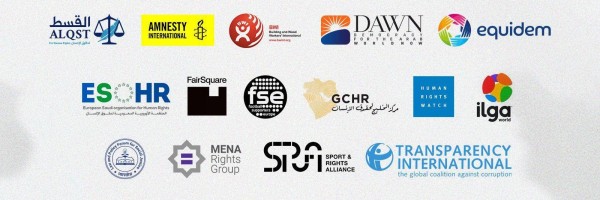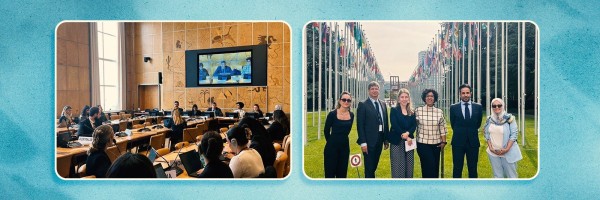The scheduled meeting today between French President Emmanuel Macron and Saudi Arabia’s Crown Prince Mohammed bin Salman is a slap in the face for Saudi human rights victims, and signals a shameful and dangerous rehabilitation of the kingdom’s de facto ruler, a trend that world leaders must urgently challenge.
Mohammed bin Salman is due to visit Paris on Thursday, 28 July 2022, when, according to the Elysee Palace, he will have a working dinner with President Macron. It marks only the second visit by the crown prince to a Western country since the 2018 state-sponsored killing of Washington Post columnist Jamal Khashoggi, following a visit to Greece on Tuesday.
Despite joining in global calls for accountability over the gruesome murder of Khashoggi and the ongoing suppression of free speech in Saudi Arabia, in December 2021 Macron became the first Western leader to meet the crown prince since the killing, during a tour of the Gulf region. Since then others have followed suit and resumed visits to Saudi Arabia, including outgoing UK Prime Minister Boris Johnson in March 2022, and US President Joe Biden earlier this month.
Rather than securing tangible concessions over human rights, such visits have served to directly embolden the kingdom’s leadership. Johnson’s visit coincided with the execution of 81 men on 12 March 2022, the largest mass execution in recent Saudi history. Meanwhile, during Biden’s tour, Saudi diplomat and former Foreign Minister Adel al-Jubeir took part in a BBC interview in which he brazenly branded dissidents as “terrorists”.
As global calls to hold Saudi leaders accountable have become more muted, the authorities have reverted to their habitual pattern of repression, an ongoing feature of the crown prince’s rule since 2017. This has included fresh waves of arbitrary arrests of peaceful critics, further harsh sentencing of activists, and deliberate attempts to endanger the lives of prisoners of conscience. In 2022 so far the Saudi authorities have carried out 120 executions, more than double the number for the whole of 2021.
Meanwhile, although a number of high-profile women human rights defenders and prisoners of conscience have been conditionally released, they remain under severe restrictions that mean that they are still not free.
ALQST’s Head of Monitoring and Communications Lina Al-Hathloul comments: “News of Mohammed bin Salman’s visit to France, coming fresh on the heels of Biden’s trip to Saudi Arabia, is a bitter pill for Saudi activists to swallow. Rather than standing up for victims of Saudi Arabia’s systemic abuses, Macron is instead choosing to give undeserved legitimacy to the crown prince, which only risks paving the way for more abuses. Now, more than ever, it is imperative that other world leaders committed to human rights take a principled stand."




